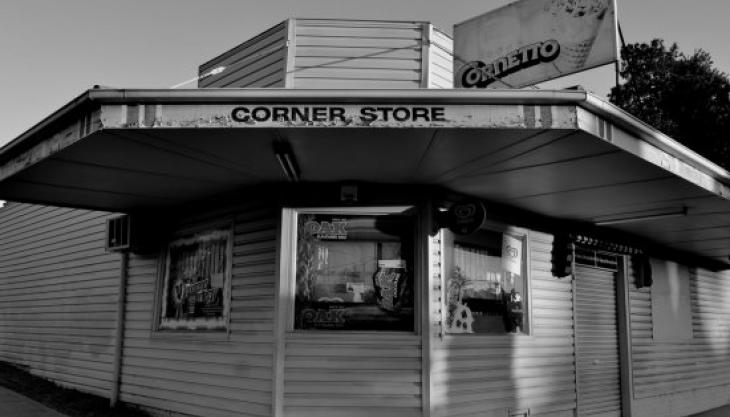Should Small Biz Owners File Business or Personal Bankruptcy for Best Results?
Submitted by Rachel R on Mon, 06/30/2014 - 1:09pm

Is your small business struggling?
Image source: Flickr Creative Commons User Andrew Fysh
When we get small business owners into the office to discuss bankruptcy, the recommendation we make depends on a variety of factors. There are three different bankruptcy chapters that may apply – Chapter 7, Chapter 13 and Chapter 11. The first two are personal bankruptcy chapters and the latter is a business bankruptcy that's the tool used by larger businesses as their only option. Both Chapter 13 and Chapter 11 can allow a business time to catch up on bills and get back on its feet.
Criteria One: Personal Accountability
If you as the business owner can be held personally liable for business debts, filing personal bankruptcy using either Chapter 7 or 13 may be wise. Sometimes when small biz owners take on debt such as a lease for their business' commercial property, equipment or services, the contract will require a personal guaranty clause. Lenders do this for businesses that don't have much of a track record so they can tie the debt into the business owner's personal credit to increase the odds they will be repaid. If you're personally on the hook for your business' debts, this makes sense.
Criteria Two: Is Your Business Closing?
If your business has no assets to speak of or if they are all leased or have debt attached so they have no residual value, Chapter 7 may be a preferable route, particularly if your business has no future. This sounds pessimistic, but you have to figure out if your business is a going concern to see which bankruptcy chapter is best. If your business has too many debts to recover, isn't panning out for whatever reason or just doesn't have a future, Chapter 7 is apt because it should wipe out most, if not all, of your obligations to get you a clean slate after you close up shop.
Criteria Three: Can Your Business Be Salvaged?
If you think your business can regain its footing and carry on, a Chapter 13 or Chapter 11 will help you keep going. A Chapter 13 is available only to sole proprietorships, but a Chapter 11 will work for sole proprietors, those in a partnership or a corporation. They both give you time to sort out your financial matters, catch up on your bills and reorganize your business to make it better able to thrive in the future. Your opinion will be important, but the Trustee and Judge in your case will also evaluate your plan and weigh in on whether they think you're a going concern. If they think it's best, they may push for your business to be liquidated (i.e. assets sold off and as many of your debts repaid as possible).
If your small business is struggling, bankruptcy may be the best solution to either get you back on track with time to catch up on your debts or to help you close it down without losing your personal assets because your business failed. Contact the law offices of John T Orcutt for a free consultation on dealing with your business debts.
Debts Hurt! Got debt? Need help? Get started below!
Serving All of North Carolina
- Bankruptcy Attorneys Raleigh NC (North)
- Bankruptcy Attorney Fayetteville NC
- Bankruptcy Attorney Durham NC
- Bankruptcy Attorneys Wilson NC
- Bankruptcy Attorneys Greensboro NC
- Bankruptcy Attorneys Southport NC
- Bankruptcy Attorneys Wilmington NC
Bankruptcy Attorneys Raleigh NC (North)
6616 Six Forks Rd #203 Raleigh, NC 27615 North Carolina
Tel: (919) 847-9750

Bankruptcy Attorney Fayetteville NC
2711 Breezewood Ave Fayetteville, NC 28303 North Carolina
Tel: (910) 323-2972

Bankruptcy Attorney Durham NC
1738 Hillandale Rd Suite D Durham, NC 27705 North Carolina
Tel: (919) 286-1695


Bankruptcy Attorneys Greensboro NC
2100 W Cornwallis Dr. STE O Greensboro, NC 27408 North Carolina
Tel: (336) 542-5993

Bankruptcy Attorneys Southport NC
116 N Howe St. Suite A Southport, NC 28461 North Carolina
Tel: (910) 218-8682

Bankruptcy Attorneys Wilmington NC
116 N. Howe Street, Suite A Southport, NC 28461 North Carolina
Tel: (910) 447-2987
